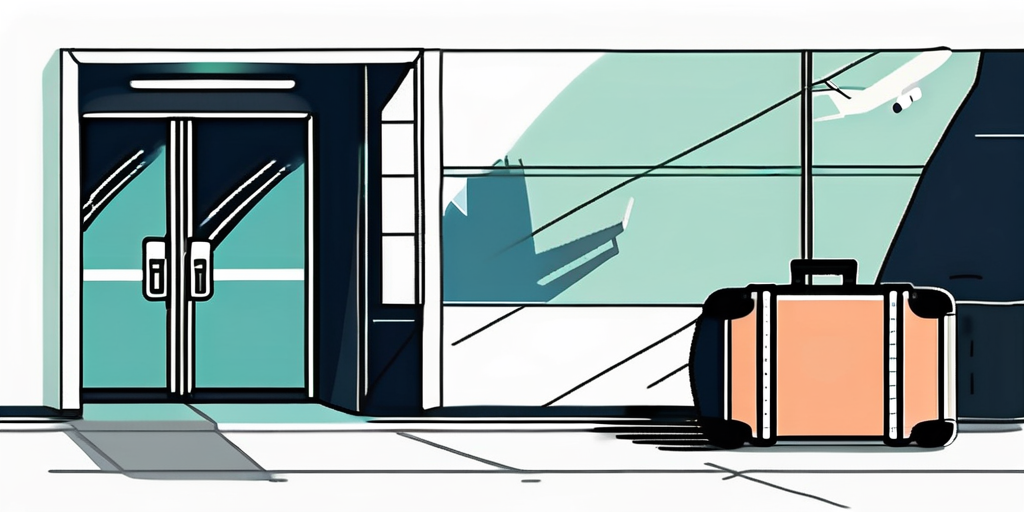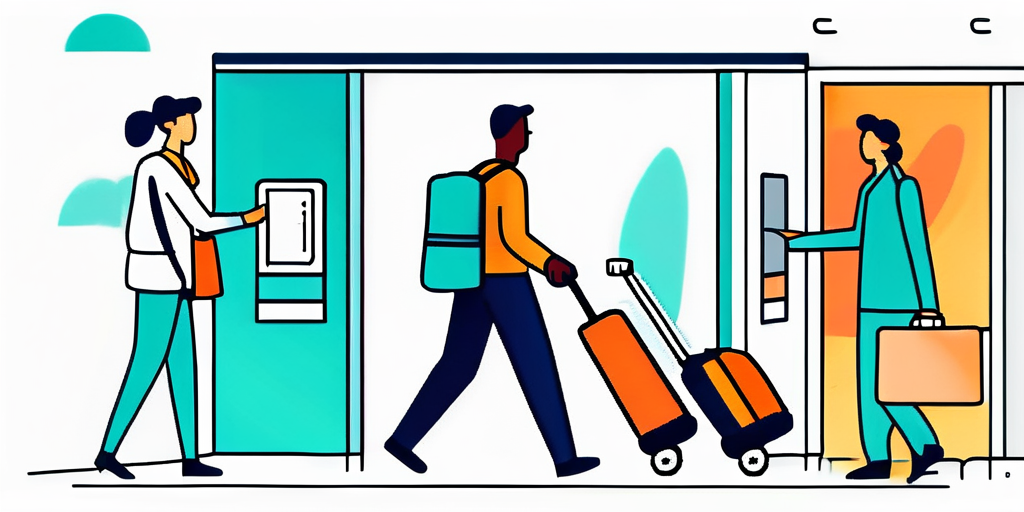How to Claim Compensation for Denied Boarding
Learn how to claim compensation for denied boarding. Follow our step-by-step guide to understand your rights and ensure fair treatment.
Understanding Denied Boarding
Denied boarding is a situation that occurs when passengers are not allowed to board their scheduled flight, despite holding valid tickets and having complied with all necessary check-in requirements. This can be a frustrating and inconvenient experience for travelers, but it is important to understand your rights and how to claim compensation if you find yourself in this situation.
 Being denied boarding can disrupt travel plans and cause stress for passengers. It can happen for various reasons, such as overbooking by airlines or last-minute operational issues. When faced with denied boarding, it is crucial for passengers to know their rights and the options available to them for recourse.
Being denied boarding can disrupt travel plans and cause stress for passengers. It can happen for various reasons, such as overbooking by airlines or last-minute operational issues. When faced with denied boarding, it is crucial for passengers to know their rights and the options available to them for recourse.
What is Denied Boarding?
Denied boarding refers to cases where airlines oversell flights or face operational difficulties, resulting in more passengers being present than available seats. In such instances, airlines may deny boarding to some passengers, even if they have confirmed reservations.
This practice of overselling flights is a common strategy used by airlines to maximize their revenue, as they anticipate a
percentage of no-show passengers. However, when more passengers show up than expected, some may be involuntarily bumped off the flight.
Legal Rights of Passengers in Case of Denied Boarding
Passengers facing denied boarding are protected by various regulations and laws, including the European Union Regulation 261/2004 and the U.S. Department of Transportation rules. These regulations establish certain rights and entitlements for affected travelers.
It's important for passengers to familiarize themselves with these regulations to ensure they receive the compensation and assistance they are entitled to in case of denied boarding. Airlines are required to provide passengers with information about their rights and the criteria for selection in case of involuntary denied boarding.
Generally, passengers who are denied boarding voluntarily are often offered a variety of compensation options by the airline, such as vouchers, alternative flights, or refunds. However, if passengers are denied boarding involuntarily, they are generally entitled to financial compensation, in addition to other assistance, under the applicable regulations.
Preparing to Claim Compensation
When faced with denied boarding, it is important to gather all the necessary information and documentation to support your compensation claim. This will help ensure a smooth claims process and increase your chances of receiving the compensation you are entitled to.
Additionally, it is advisable to keep a record of any additional expenses incurred as a result of the denied boarding, such as accommodation, meals, or transportation. These expenses may also be eligible for reimbursement as part of your compensation claim.
Necessary Documents for a Compensation Claim
Before filing a compensation claim, it is crucial to have the following documents readily available:
- Boarding pass or ticket
- Proof of reservation
- Any communication or correspondence with the airline
- Any documentation provided by the airline, such as vouchers or alternative flight details
Furthermore, it is recommended to take note of the date and time of the denied boarding incident, as well as the names of any airline staff involved. This information can serve as valuable evidence to support your claim.
Determining the Reason for Denied Boarding
Understanding the reason behind the denied boarding is essential when preparing your compensation claim. In some cases, it may be due to overbooking, while in others, it could be because of operational difficulties, such as a technical issue with the aircraft or an unexpected crew shortage. Determining the specific reason will help strengthen your claim.
Moreover, it is beneficial to familiarize yourself with the relevant air passenger rights regulations, such as the EU Regulation 261/2004, which outline the compensation and assistance that passengers are entitled to in cases of denied boarding. Being informed about your rights can empower you to advocate for fair treatment and compensation.
The Compensation Claim Process
Once you have gathered all the necessary documents and determined the reason for denied boarding, it is time to initiate the compensation claim process. While the precise steps may vary depending on the airline and jurisdiction, the following general guidelines will assist you in filing a claim.
Steps to File a Compensation Claim
-
Contact the airline: Begin by reaching out to the airline's customer service department or using their online claim form. Provide them with all the relevant details, including your flight information, the reason for denied boarding, and any supporting documentation.
-
Follow up in writing: In addition to the initial contact, it is recommended to send a written communication outlining your claim and attaching copies of all relevant documents. This serves as a formal record and can be useful in case of disputes or delays.
-
Keep a record: Maintain a detailed record of all communications with the airline, including dates, times, and the names of the representatives you interact with. This information can be crucial if you need to escalate your claim or involve regulatory bodies.
Time Frame for Claim Processing
The time it takes for airlines to process compensation claims for denied boarding can vary. While some airlines may provide a prompt resolution, others might take longer to assess the claim and reach a decision. This timeframe can also be influenced by factors such as the airline's workload, the complexity of the case, and any external disputes resolution processes.
It is important to note that the compensation claim process can sometimes be a lengthy and frustrating experience for passengers. However, it is crucial to persevere and remain persistent in pursuing your claim. Remember, you have the right to seek compensation for the inconvenience and potential financial loss caused by denied boarding.
During the claim processing period, it is advisable to stay informed about your rights as a passenger. Familiarize yourself with the relevant regulations and laws that govern compensation claims in your jurisdiction. This knowledge will empower you to advocate for your rights effectively and ensure that you receive the compensation you deserve.
Dealing with Claim Rejections
Occasionally, airlines may reject compensation claims for denied boarding. However, this does not mean that you should give up or accept their decision without further action. Understanding the reasons for claim rejections and knowing your options for further recourse can help you navigate this situation.
 When faced with a claim rejection from an airline, it's essential to delve deeper into the reasons behind their decision. By doing so, you can identify potential areas of contention and determine the best course of action to challenge the rejection. Remember, claim rejections are not always final, and with persistence and the right approach, you may still secure the compensation you deserve.
When faced with a claim rejection from an airline, it's essential to delve deeper into the reasons behind their decision. By doing so, you can identify potential areas of contention and determine the best course of action to challenge the rejection. Remember, claim rejections are not always final, and with persistence and the right approach, you may still secure the compensation you deserve.
Reasons for Claim Rejection
The airline may reject your claim for various reasons, such as:
- Discrepancies in documentation
- Disputes over the eligibility for compensation
- Technicalities or exceptions outlined in the relevant regulations
If your claim is rejected, carefully review the airline's response and seek clarification if necessary. If you believe the rejection was unjustified, you may consider appealing the decision.
Moreover, understanding the specific regulations and policies governing compensation claims in the aviation industry can empower you in your pursuit of a successful appeal. Familiarize yourself with your rights as a passenger and the obligations airlines have towards their customers to bolster your case during the appeals process.
Appealing a Denied Compensation Claim
If your compensation claim is rejected and you disagree with the airline's decision, you have the right to appeal. This may involve escalating the matter to higher levels within the airline's customer service department or seeking assistance from regulatory bodies or consumer rights organizations. The appeal process can vary depending on the jurisdiction and the specific regulations in place.
When preparing to appeal a denied compensation claim, gather all relevant documentation, correspondence, and evidence to support your case. Presenting a comprehensive and well-documented appeal can significantly increase your chances of a favorable outcome. Remember, persistence and a clear understanding of your rights are key when navigating the appeals process in the face of claim rejections.
Tips to Prevent Denied Boarding
While dealing with denied boarding can be challenging, there are proactive steps you can take to reduce the likelihood of encountering this situation.
 One additional strategy to prevent denied boarding is to choose your seat assignment at the time of booking. By selecting your seat early, you can secure your place on the flight and decrease the chances of being bumped off due to overbooking. Additionally, opting for a seat with extra legroom or other amenities can make you a less likely candidate for involuntary denied boarding.
One additional strategy to prevent denied boarding is to choose your seat assignment at the time of booking. By selecting your seat early, you can secure your place on the flight and decrease the chances of being bumped off due to overbooking. Additionally, opting for a seat with extra legroom or other amenities can make you a less likely candidate for involuntary denied boarding.
Early Check-In Procedures
Arriving at the airport early and completing the check-in process well before the recommended time can give you an advantage in case of potential issues, such as overbooking. Early check-in ensures that you have a confirmed seat and lowers the likelihood of being denied boarding due to overcapacity.
Another effective approach is to sign up for flight status alerts. By staying informed about any changes or disruptions to your flight schedule, you can proactively address any issues that may lead to denied boarding. Flight status alerts can help you anticipate delays, cancellations, or overbooking situations, allowing you to take action before arriving at the airport.
Understanding Overbooking Policies
Each airline has its own policies and practices regarding overbooking, which can impact the likelihood of facing denied boarding. Familiarize yourself with these policies and consider airlines that prioritize customer satisfaction and minimize overbooking practices when making your travel arrangements.
By understanding your rights, being prepared, and staying informed, you can navigate the process of claiming compensation for denied boarding more effectively. Remember to stay persistent, keep proper documentation, and seek assistance when needed. With these strategies, you can increase your chances of receiving the compensation you deserve.
Ready to Claim Your Compensation?
If you've experienced denied boarding and are unsure how to proceed, let ClaimCompass take the helm. We specialize in helping air passengers like you claim up to 600€ for flight disruptions. Our expertise in EU Regulation 261/2004 ensures that we can swiftly determine your eligibility for compensation. With our no-win, no-fee policy, you have nothing to lose. Use our compensation calculator to check your eligibility for free, and we'll handle everything from submitting your claim to taking the airline to court if necessary. Submit a claim with ClaimCompass today, and let us secure the compensation you're entitled to.
